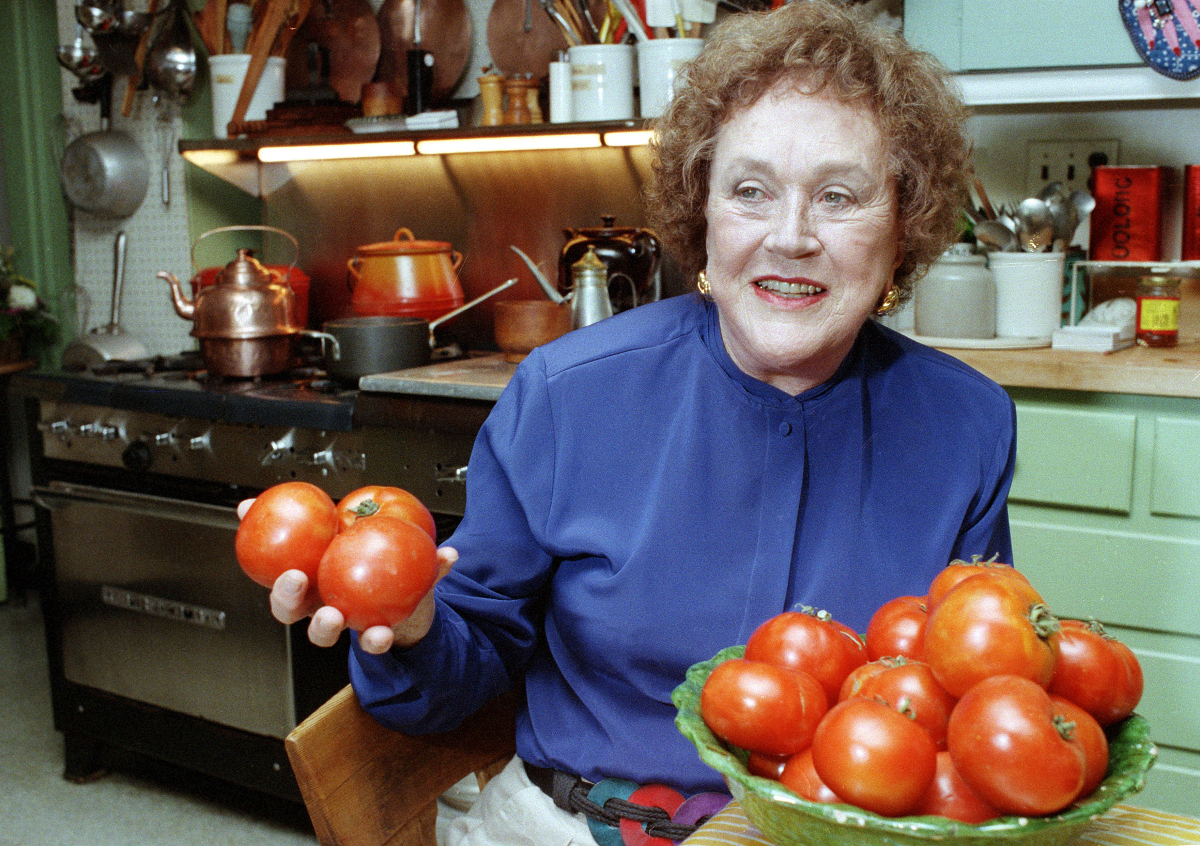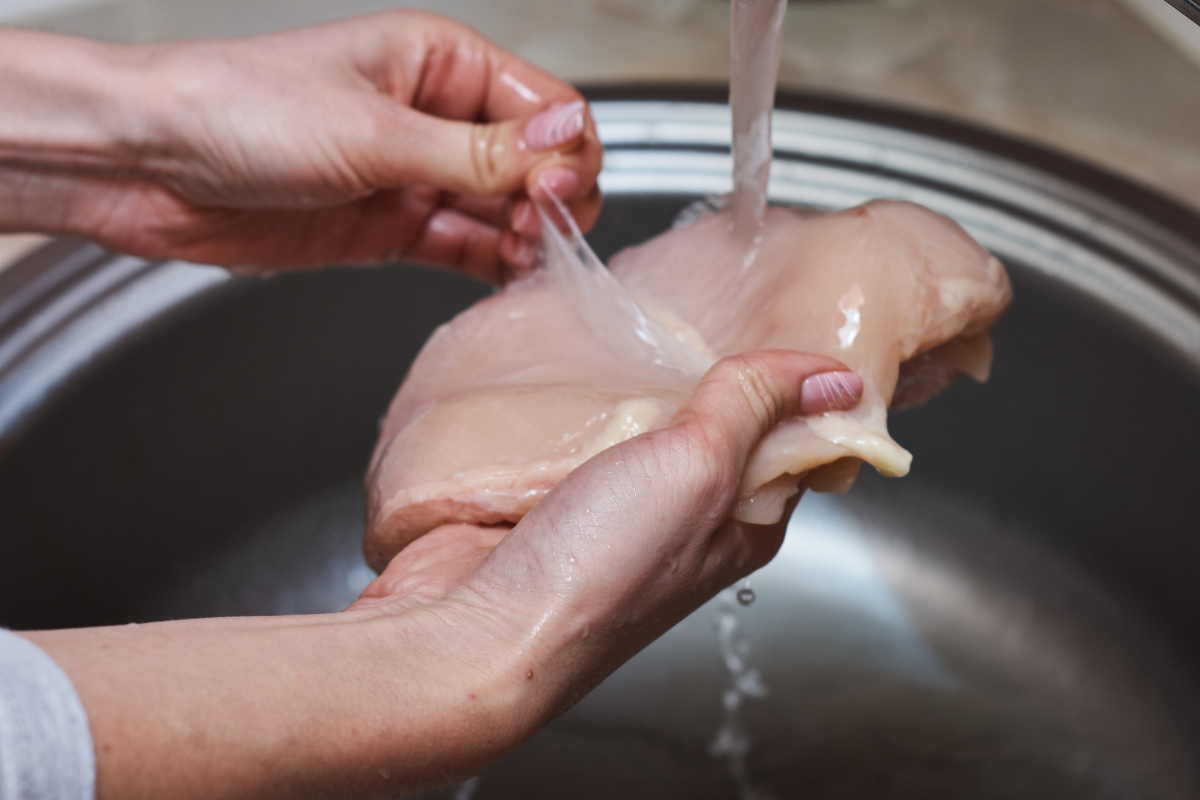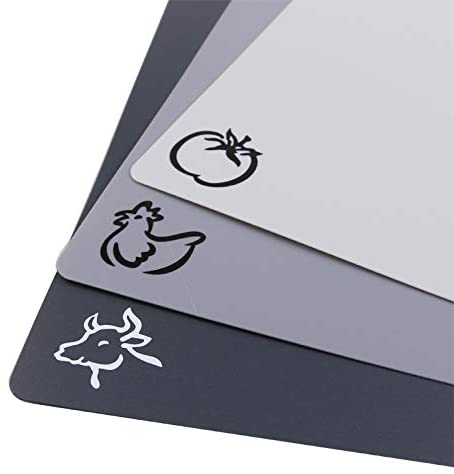The products and services mentioned below were selected independent of sales and advertising. However, Simplemost may receive a small commission from the purchase of any products or services through an affiliate link to the retailer's website.
Do you wash your chicken as part of your usual dinnertime prep? If not, it may surprise you to know that a 2019 study from Drexel University found that 90% of survey respondents said they rinse their raw poultry. And it’s no wonder: Running your raw chicken under water used to be a common recommendation. Even the famous chef and cookbook author Julia Child advised people to rinse their chicken before cooking it.
But, for many years, people have been pushing against the idea that you should wash raw chicken before cooking. Indeed, French chef Jacques Pépin famously disagreed with Child that rinsing raw chicken is necessary. So, if you’re wondering whether you should be engaging in this practice, here’s what you should know.

Did Julia Child Have It Wrong?
In an episode of PBS’ “Julia & Jacques Cooking at Home,” Pepin was a bit flummoxed by Child’s recommendation that people should rinse their raw chicken.
“I’ve washed it with hot water,” Child said.
Smiling but shaking his head, Pepin replied, “I don’t wash my chicken.”
“He doesn’t wash his,” Child replies. “I think in France, they’re not as worried about things as we are, are they?”
“Well, I live in Connecticut — pretty far from France!” Pepin replied, good-naturedly. “But what happened is that I feel it’s going to go in a 400-, 425-degree oven for an hour or so, and at that point, if the bacteria are still living, they deserve to live, you know?”
So who was right? Should you wash chicken before you cook it or not?
As much as we love Julia Child and are awed by her contributions to the culinary world, it turns out she was wrong on this point. Food safety experts have discovered that rinsing raw chicken can actually present a great deal of risk. In a 2019 study led by the U.S.Department of Agriculture (USDA), it was found that 60% of people who rinse their raw poultry end up with bacteria in their sink. What’s more, 14% still had this bacteria in their sink even after they cleaned it.

Washing Chicken Contaminates Kitchen Surfaces
And here’s something even more frightening: The same study found 26% of people who rinsed their poultry ended up then transferring that bacteria to uncooked items, like lettuce and bagged salads. It makes sense, as most people put fruits and veggies under the kitchen tap for a quick rinse before preparing them, but if your sink is already contaminated by bacteria from raw poultry, you could end up transferring germs to your other foods. The bacteria can also get on countertops and utensils when it’s rinsed off the chicken.
The Centers for Disease Control and Prevention estimates that around 1 million Americans become ill from eating contaminated poultry each year. And food safety officials at USDA say that foodborne illnesses can be especially dangerous for children or older adults, so if you’re cooking for high-risk individuals, you need to be even more careful when handling poultry.
“Everyone has a role to play in preventing illness from food,” said Administrator Carmen Rottenberg of the USDA’s Food Safety and Inspection Service. “Please keep in mind that children, older adults, and those with compromised immune systems are especially at risk. Washing or rinsing raw meat and poultry can increase your risk as bacteria spreads around your kitchen, but not washing your hands for 20 seconds immediately after handling those raw foods is just as dangerous.”
And, not only can rinsing raw chicken cause bacteria to spread around your sink and elsewhere in the kitchen, it’s not even doing any good. Foodborne pathogens like salmonella and campylobacter bacteria, each commonly found on raw chicken, cannot be washed away. But these bacteria can be easily killed by the heat of cooking, as long as you cook your meat thoroughly.

Be Safe When Preparing and Cooking Chicken
If you cook your poultry at least to an internal temperature of 165 degrees Fahrenheit, you will destroy any harmful bacteria. So, instead of rinsing your chicken, invest in a good meat thermometer and make sure that you are cooking your chicken to the appropriate temperature. If you are looking for a reliable and affordable meat thermometer, check out this handy guide of the best digital meat thermometers vetted by our sister site, Don’t Waste Your Money.
It is also a good idea to invest in a cutting board that you will exclusively use for raw poultry so that you can easily toss that cutting board in the dishwasher once you are done with your poultry prep. This way you can be sure that you won’t accidentally end up using that same board for chopping any produce or other ingredients.
An option like this cutting board trio from Amazon is an easy choice, as each cutting board is clearly marked for chicken, beef or produce.

If You’ve Washed Chicken, Sanitize Your Kitchen Surfaces
If you have washed raw poultry in the sink before, or if you are worried that you may still have harmful bacteria in your sink, you can kill these germs on your kitchen surfaces with a two-step process. Use warm, soapy water to first wash any areas that may have been contaminated. After cleaning away the dirt, crumbs and grime, you can then move on to the next step: sanitizing.
“Including a sanitizing step in your cleaning routine actually reduces the number of foodborne illness-causing pathogens that survive in your kitchen — sanitizing kills bacteria. However, sanitizing is most effective after you have cleaned those surfaces,” the USDA says. “So, don’t skip the clean step!”
You can buy sanitizing wipes or cleaning solutions, or you can make your own by mixing one tablespoon of bleach with a gallon of water. If the scent of bleach or harsh cleaning smells bother you, try Purell Foodservice Surface Sanitizer Spray, which is fragrance-free.
So, should you wash chicken before you cook it? The answer is no. That’s one less thing you have to worry about when you’re making food, at least!
This story originally appeared on Simplemost. Checkout Simplemost for additional stories.


